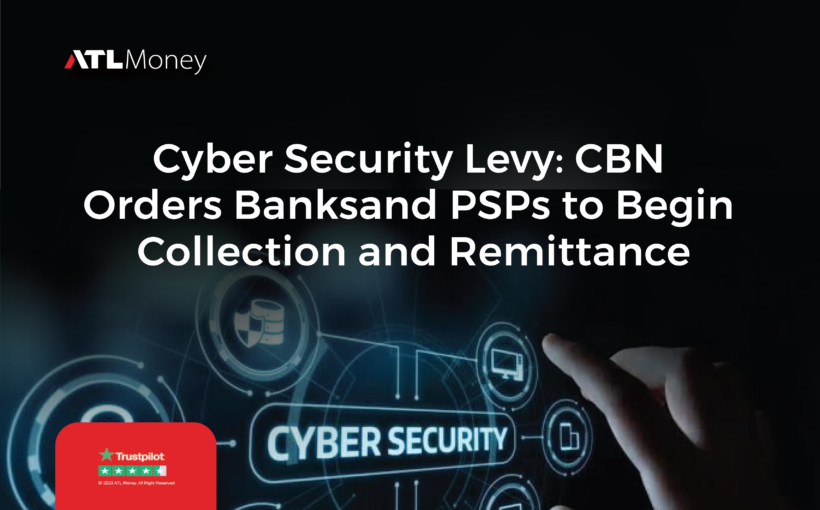The Central Bank of Nigeria (CBN) has recently mandated banks and Payment Service Providers (PSPs) to start the collection and remittance of a new Cyber Security Levy.
This significant move aims to bolster the country’s defenses against cyber threats. Here’s what this new development means for everyone involved.
What is the Cyber Security Levy?
The Cyber Security Levy is a new financial charge introduced by the CBN. Its primary objective is to fund initiatives and infrastructure that enhance cybersecurity across Nigeria’s financial system. As cyber threats become more sophisticated and frequent, there is a growing need for robust measures to protect sensitive financial data and transactions.
Why Has the CBN Introduced This Levy?
The introduction of the Cyber Security Levy is part of the CBN’s broader strategy to strengthen the cybersecurity framework within the banking and financial services sector.
Cyberattacks on financial institutions have increased globally, posing significant risks to financial stability and customer trust. By implementing this levy, the CBN aims to:
– Enhance Cybersecurity Infrastructure: The funds collected will be used to upgrade and maintain cutting-edge cybersecurity infrastructure.
– Improve Incident Response: Enhanced resources will enable quicker and more effective responses to cyber incidents.
– Protect Consumer Data: Ensuring the protection of consumer data is paramount, and this levy will support measures to safeguard sensitive information.
– Increase Awareness and Training: The levy will also fund training programs to improve the cybersecurity skills of personnel within financial institutions.
Impact on Banks and PSPs
Banks and PSPs are directly affected by the introduction of the Cyber Security Levy. Here’s how:
Implementation Costs: Financial institutions will need to integrate systems for the collection and remittance of the levy. This might require updates to existing payment systems and additional administrative processes.
Operational Adjustments: Banks and PSPs will need to adjust their operational procedures to comply with the new requirements. This includes setting up mechanisms for accurate levy calculation, collection, and timely remittance to the CBN.
Increased Security Expenditure: While the levy itself is a cost, the primary goal is to enhance overall cybersecurity measures. Banks and PSPs may need to increase their investment in cybersecurity to align with the CBN’s objectives.
Customer Communication: Financial institutions will need to communicate clearly with their customers about the levy and its implications. This transparency is crucial to maintain customer trust and avoid confusion.
What It Means for Customers
For customers, the introduction of the Cyber Security Levy has several implications:
Potential Service Charges: While the levy is targeted at financial institutions, there may be indirect costs passed on to customers. Banks and PSPs might introduce or increase service charges to offset the levy’s impact.
Enhanced Security: The primary benefit for customers is improved security of their financial data and transactions. With better cybersecurity measures in place, the risk of fraud and data breaches should decrease.
Awareness and Education: As part of the broader cybersecurity initiative, customers may also receive more information and education on safe banking practices, enhancing their personal security awareness.
Long-term Benefits
In the long run, the Cyber Security Levy is expected to yield several benefits:
– Reduced Cybercrime: With improved defenses, the incidence of successful cyberattacks should decline.
– Increased Trust in Digital Banking: Enhanced security measures will help build greater trust among consumers in digital banking services.
– Compliance with Global Standards: Strengthening cybersecurity will align Nigeria’s financial sector with international standards, fostering greater confidence among global investors and partners.
Conclusion
The CBN’s directive for banks and PSPs to begin the collection and remittance of the Cyber Security Levy marks a significant step towards fortifying Nigeria’s financial cybersecurity framework. While this levy introduces new responsibilities and potential costs for financial institutions and customers, the long-term benefits of enhanced security and trust in the financial system are substantial.
By proactively addressing the evolving cyber threat landscape, the CBN aims to ensure the resilience and integrity of Nigeria’s financial sector. As this initiative unfolds, continuous communication and collaboration between the CBN, financial institutions, and customers will be key to its successful implementation.
Ready to send money abroad securely? Try ATLMoney for a fast, secure, and cost-effective transfer experience.
